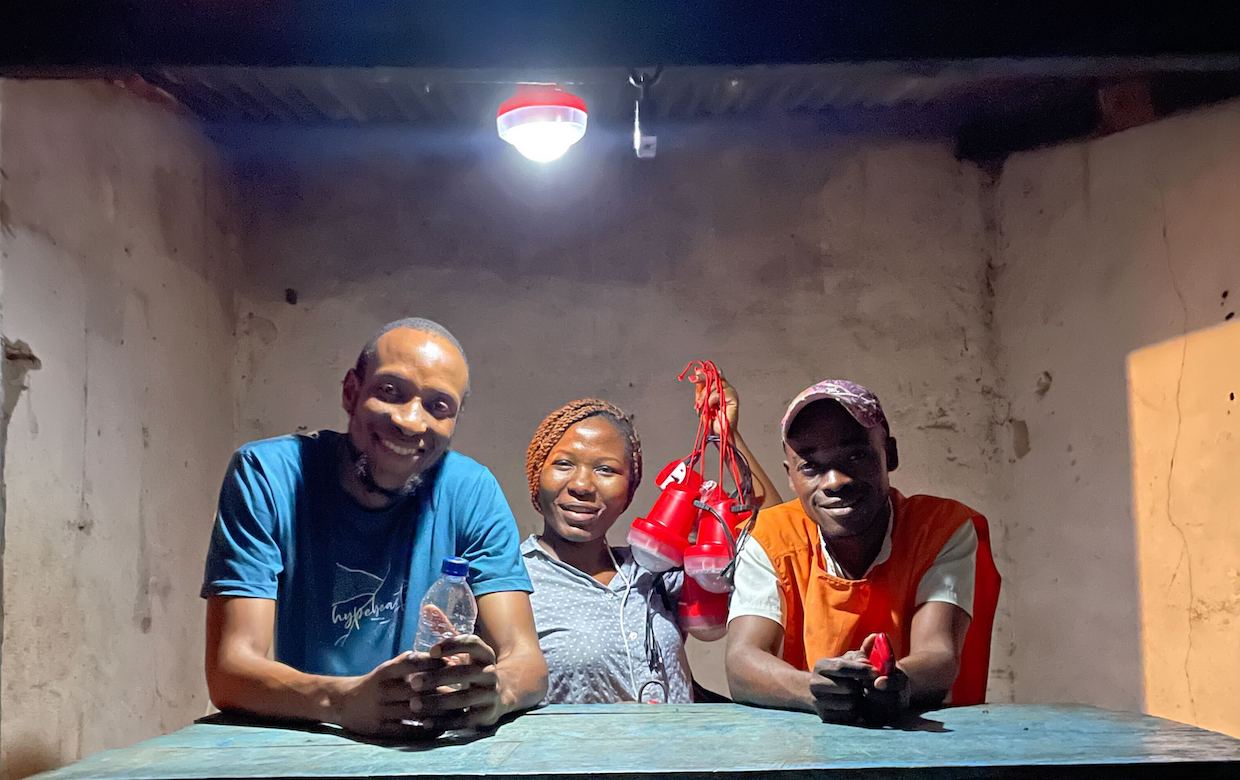[ad_1]
The impact of climate change in Africa is drawing attention leading up to an international conference led by the Japanese government, as part of multiple crises the continent is facing along with the COVID-19 pandemic and the Russian invasion of Ukraine.
Scientists have warned that Africa is likely to be hit the hardest by the catastrophic effects of climate change, such as droughts and floods, although the continent contributes less than 4 percent of global greenhouse gas emissions, according to the United Nations.

File photo shows residents of Malawi’s flood-affected Chikwawa District standing on a bank under construction in January 2016.
Other crises Africa is facing include the fallout from Russia’s invasion of Ukraine and the COVID-19 pandemic, notably soaring wheat and oil prices that have drastically impacted the supply of food and energy for the people and economies of Africa, according to the Japan International Cooperation Agency, a government-backed aid agency.
The Intergovernmental Panel on Climate Change, the U.N. body for assessing science related to climate change, pointed out in a report released in March that climate change is already ravaging the continent and millions have already been displaced due to extreme weather.
The IPCC also projected about 250 million people may experience high water stress in Africa by 2030 with up to 700 million people displaced as a result.
Although the issue is not new, a sense of crisis over the impact of climate change is growing, JICA officials said, prior to the eighth Tokyo International Conference on African Development, known as TICAD8, which will be held in Tunisia on Aug. 27 and 28.
TICAD is an international conference initiated by the Japanese government in 1993, which is co-hosted by the United Nations, U.N. Development Program, World Bank and African Union Commission.

File photo shows participants in the seventh Tokyo International Conference on African Development holding a press conference after the meeting in August 2019 in Yokohama, near Tokyo. (Kyodo)
“TICAD8 will be a very important occasion to highlight the concept of human security as well as international solidarity toward the goal of world peace,” said JICA Vice President Ryuichi Kato at a media roundtable in Tokyo in May.
Earlier this year, the Foreign Ministry held a virtual TICAD ministerial meeting joined by delegates from African countries.
On the issue of human security, the participants affirmed the importance of promoting efforts on environmental issues including climate change to ensure African development will be sustainable.
In other words, the approach to promote climate action in African countries should contribute both to climate benefits and development benefits, the ministry indicated.
People in the continent are facing the risk of income loss and food insecurity as many of the activities essential to African economies are weather-sensitive. These include things such as agriculture, herding and fishing, according to JICA.
“Declines in agricultural productivity due to climate change are increasing malnutrition,” said Kato.
JICA’s climate efforts in the continent include the development of geothermal energy in Kenya, a project designed to meet electricity demand through renewable energy sources.
In addition to taking mitigation measures to curb greenhouse gas emissions, measures for adapting to climate change are also considered an important approach to reduce the current impact and prepare for potential risks, according to climate experts.
The U.N. Environment Program estimates a potential market size of the climate adaptation business to reach up to 50 trillion yen ($387 billion) as of 2050, if the world succeeds in containing the increase in global average temperature at 2 C above pre-industrial levels.
The Ministry of Economy, Trade and Industry has been soliciting the participation of the private sector in adaptation activities overseas including Africa.
These include Panasonic Corp.’s solar lanterns project in Uganda and Sumitomo Chemical Co.’s mesh screen with insecticide agent to prevent the spread of malaria and other infectious disease associated with climate change in Tanzania, according to METI.

Photo shows a wind farm project in Egypt developed with Japan’s support. (Photo courtesy of the Japan International Cooperation Agency)(Kyodo)
A METI official said the government is eyeing shedding light on some good adaptation projects conducted in Africa by Japanese companies through seminars and other events in the run up to TICAD8 in the hope of heightening the business momentum in the region.
With climate change seen as a major factor in threatening human security in Africa and world peace due to the increase in natural disasters and food insecurity, Kato said cross-sectional adaptation efforts are essential in numerous fields, including agriculture, infrastructure, water resources, eco-systems and disaster prevention.
Although the share of greenhouse gas emissions is relatively small in African countries compared to other regions, emission reductions and other climate actions are required in Africa as well under the Paris climate agreement.
It is crucial to deepen mutual understanding on what developed nations should do and what developing nations can do in terms of tackling climate change, Kato said.
Related coverage:
Africa tops 1 million coronavirus infections: WHO
Japanese photographer brings “cinema stars” to Africa
[ad_2]
Source link














